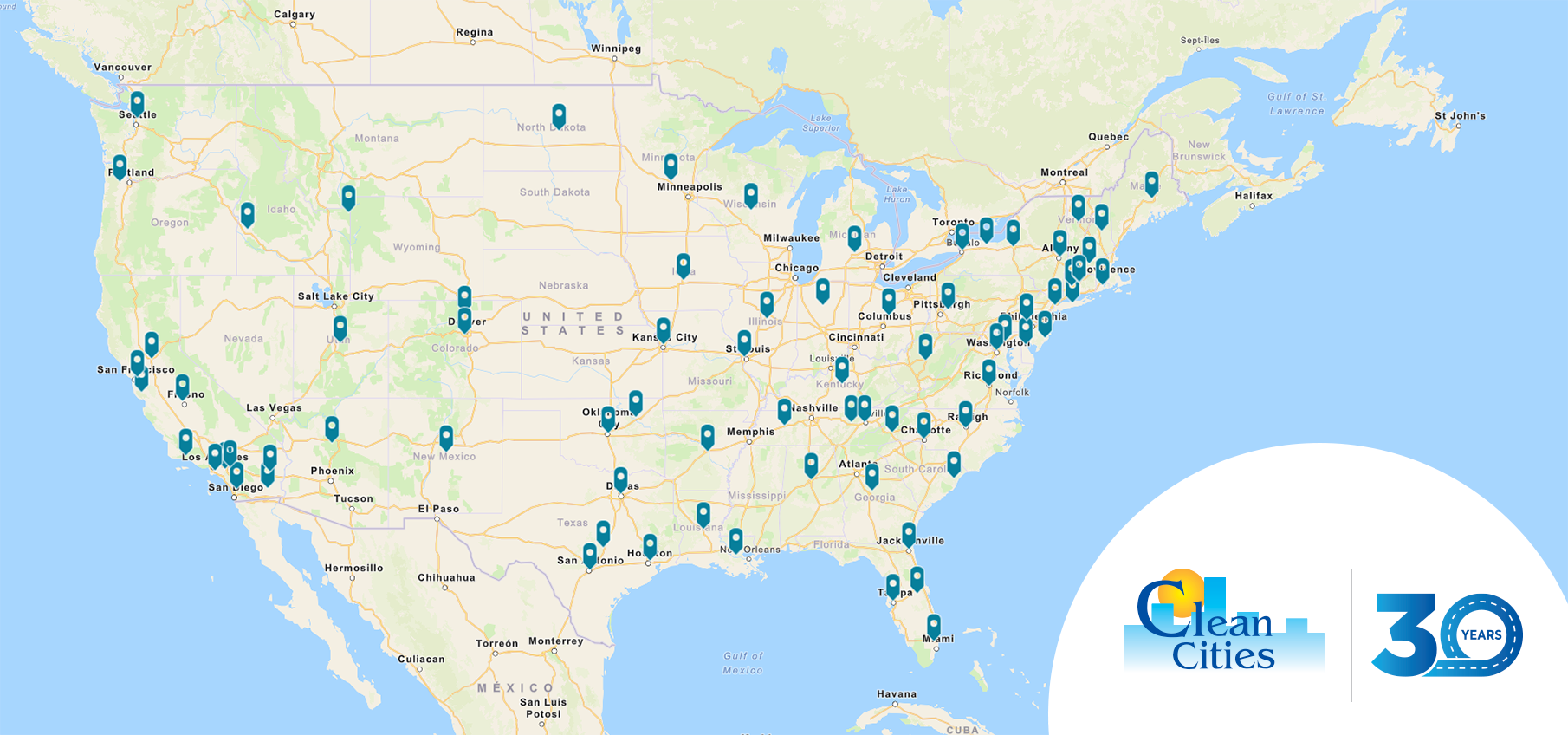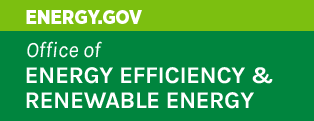Celebrating 30 Years
Clean Cities and Communities has been advancing affordable, reliable, and secure transportation since 1993. The network has built bipartisan support, deep connections within the transportation industry, and active partnerships with 20,000 public and private stakeholders. Thriving on a culture of collaborative change, coalitions harness decades of deployment expertise to continue moving our transportation systems into the future.
30 Years of Alternative Fuel Transportation Deployment
Explore projects highlighting how Clean Cities and Communities coalitions act in local communities throughout the country to move transportation into the future.

More than 75 coalitions work locally in urban, suburban, and rural communities to help businesses and consumers meet their financial and energy goals. As partners with the U.S. Department of Energy's Vehicle Technologies Office, coalitions leverage expertise from federal agencies, national laboratories, and other coalitions. They bring this expertise directly to the communities they serve, developing solutions based on a unique understanding of local needs, opportunities, and markets.
Local Action Generates National Impact
Coalitions combine their collective experiences and knowledge to advance our nation’s transportation system far beyond what any single organization could accomplish on its own. Connect with your local coalition to see how they work in communities large and small to generate a compounding impact nationwide.
